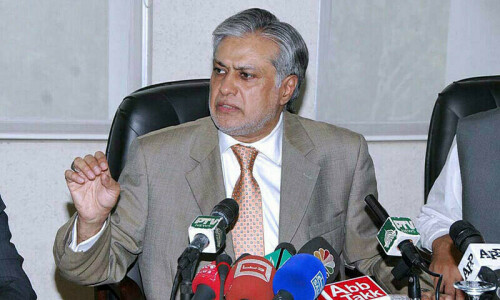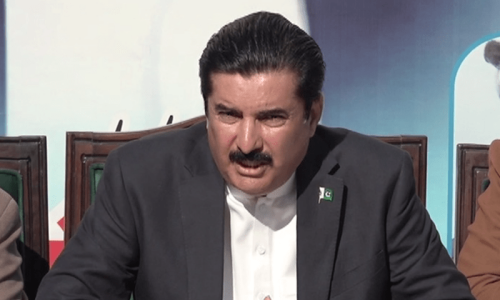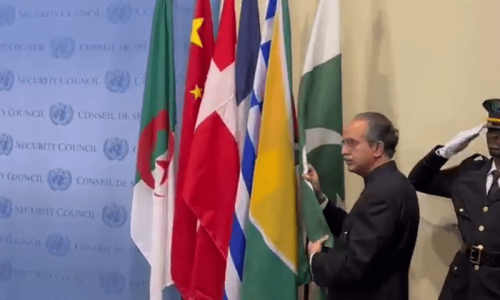TWO pieces published in these columns lately discussed plagiarism and gave some blatant examples of the literary theft set by some really big names. Plagiarised works by some not-so-great authors were also mentioned in those pieces. But there still remain some plagiarised works that could not be covered in the earlier pieces for want of space. So let us have a quick look at some more dirty little secrets.
While plagiarism is basically presenting someone else’s work as one’s own, translating something or adapting a theme without acknowledging the source is a kind of plagiarism, too. List of Urdu writers accused of borrowing themes from the Western or even Eastern literatures --- and qualifying for the ‘Hall of Shame’ --- includes some big names. For instance, Nazeer Ahmed Dehlvi’s book Muntakhabul Hikayaat is based on three works: Aesop’s Fables (the famous Western work), Miraatun Nisa (an Urdu work) and Haft Gulshan (a Persian work), says Dr Iftikhar Ahmed Siddiqi in his dissertation Moulvi Nazeer Ahmed Dehlvi: Ahwaal-o- Aasaar (published by Majlis-i-Taraqqi-i-Adab, Lahore, 1971, and recently reprinted). Dr Siddiqi says Nazeer Ahmed’s Taubatun Nusooh is based on Daniel Defoe’s novel The Family Instructor, but nowhere has Nazeer Ahmed mentioned it.
Sultan Hyder Josh (1886-1953) was a satirist of Urdu and well-versed with western fiction, which reflects in his fictional works. His novella Havaai is often acknowledged as Urdu’s first novella. But it is too heavily ‘influenced’ by Ernest Hemingway’s A Farewell to Arms. Josh’s Naqsh-o-Naqqaash is ‘inspired’ by Somerset Maugham’s The Moon and Sixpence. His article ‘Iblees’, published in Tamaddun, was a plagiarised brief Urdu version of Marie Corelli’s Sorrows of Satan.
Imtiaz Ali Taj’s famous character ‘Chachcha Chhakkan’ is based on renowned English humorist Jerome K. Jerome’s work, but Taj only half-heartedly mentioned in the second edition that he had ‘benefitted’ from Jerome’s work.
It is now common knowledge that in his introduction to Noon Meem Rashid’s Ma Vara Krishan Chandr had translated certain parts of C. D. Lewis’s book A Hope for Poetry without referring to it, though at that time the intro was acknowledged as something superb.
The basic theme of Krishan Chandr’s novel Ulta Darakht is taken from Lewis Carroll’s Alice’s Adventures in Wonderland. In Carroll’s work it is a rabbit’s burrow that Alice falls into but in Krishan’s work it is a tree that grows inversely, that is, into the earth, and the boy falling into it experiences strange things, just as Alice does. Though a juvenile work, Krishan has tried to propagate Marxism through it and in the end it turns out to be too macabre for children.
Recently, Iqbal Academy, Lahore, has published the third edition of Asfaar-i-Iqbal, a book by Inayat Ali. It recollects in details the journeys that Allama Iqbal had taken. But it almost entirely depends on Muhammad Hamza Farooqi’s book Safar Nama-i-Iqbal, claims Farooqi Sahib. Farooqi’s work, a piece of original and meticulous research that has been through four editions, is referred to only cursorily.
Plagiarised university theses are another source of annoyance. Many so-called ‘researchers’ were caught red-handed as their doctoral dissertations were found to be smart pieces of ‘copy-and-paste-technology’. Such theses are scrutinised through software and research works contaminated with copied material above a certain percentage are rejected. But it is much difficult to exactly ascertain the extent of plagiarised portions in Urdu’s theses as it requires modern Urdu softwares, which we may not have.
Another kind of plagiarism gaining much ‘popularity’ among our academics these days is self-plagiarism, defined as a kind of literary theft in which a scholar uses his or her own work or works, partially or wholly, while writing a new research paper or book. It is unethical because the author wants to take credit for the same work more than once. The purpose of self-plagiarism is usually increasing the number of one’s research works so as to enable oneself to get next promotion, especially at a university.
Though the Higher Education Commission (HEC) keeps on raising the bar for promotion as well as for crediting the research works to be accepted as quality research, the HEC itself is in shambles and several of its officers, who tell us (perhaps with the help from Google) what research is and how research is conducted, do not possess a PhD themselves and have never carried out any research in their life. Even then they adamantly keep on deciding the playing rules and parameters for professors supervising doctoral dissertations at the university level.
Another trend rampant among our university students is to get a PhD dissertation written on payment. In other words, it is a kind of rent-a-researcher service and some of our so-called researchers, who have served at senior level at one university or another, had never done any research practically as their theses were written by some ghost researchers. —drraufparekh@yahoo.com
Published in Dawn, October 25th, 2021














































Dear visitor, the comments section is undergoing an overhaul and will return soon.